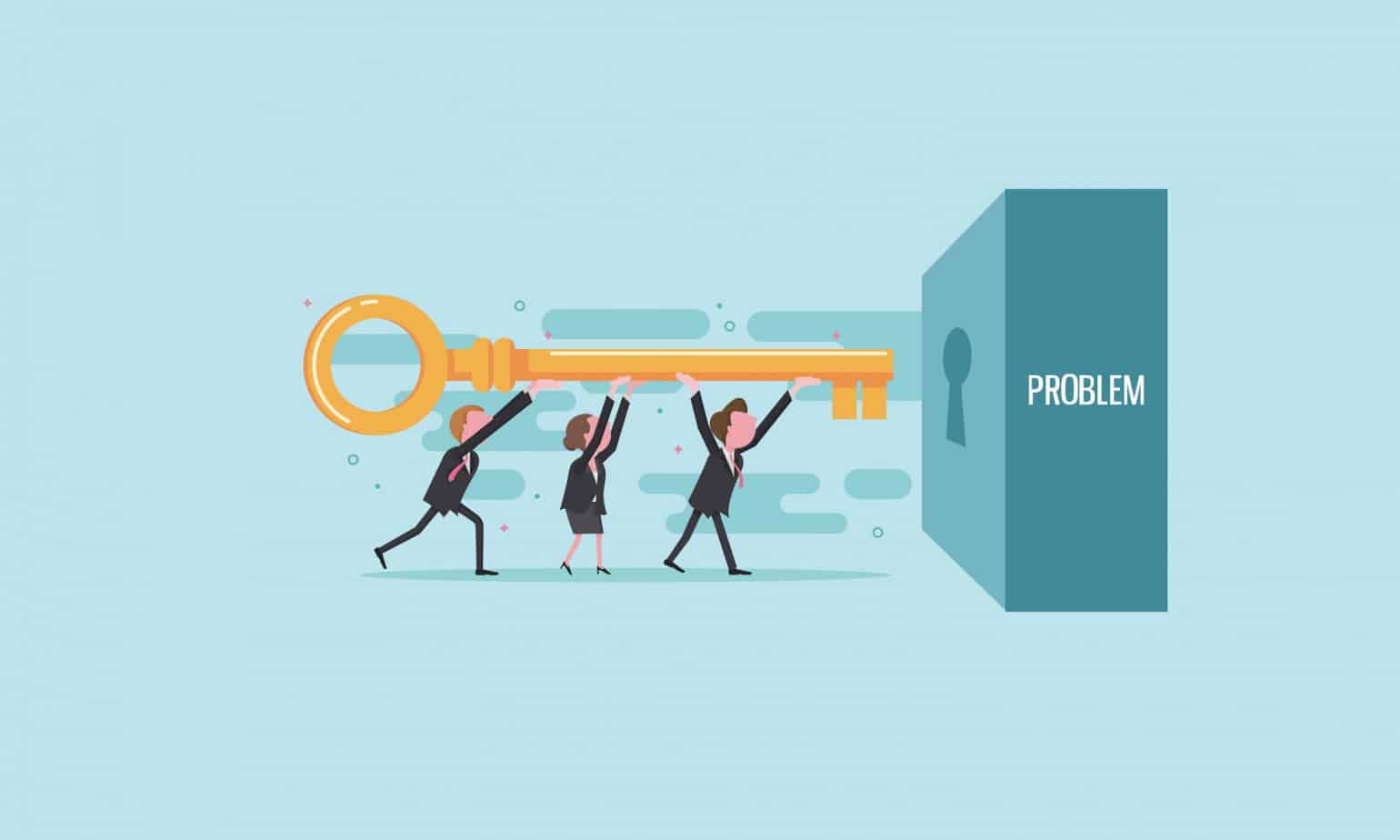Hello, hello, hello! Welcome back to the Thoughtversation. Today is about problem-solving. We all have problems in our lives, but the way we approach them can determine whether or not we actually solve them. And I’ll give you the main idea right here at the beginning – identify the problem. That process might require some deep thought. It might require some personal reflection. It might require you to dig until you get to the root of the issue. But at the end of it all, you’ll be better off.
Problem-Solving By Learning a Song

So, like I said before, you can’t solve a problem if you don’t know what the problem actually is. There are a whole lot of guides floating around on the Internet about how to solve problems (here are a few), but there’s one thing they all have in common – “identify the problem” is Step 1. This will always be true of any problem that you are trying to solve. Take music, for example. You may be trying to learn a song on guitar. One way to learn it would be to listen to the whole thing and then try to play it back. But if the song is long or even a little bit difficult, you may not be able to do that.
It’s possible that if you listen to the whole song over and over again, eventually you’ll be able to play everything in the song. But chances are, you would instead try to learn the song piece by piece. You probably wouldn’t just try the whole thing and then say “this is hard” and call it a day. The better strategy would be to break the song down and identify which SPECIFIC parts are hard, so you can fix them.
“I don’t play guitar. Why should I care?”
Good question. This concept can be extended in many other ways, one of those ways being – relationships. Whether it’s with friends, with family, or with significant others, we have all seen problems come up in a relationship. And in all of those situations, identifying the problem is key to solving it. This is of course assuming that you want to have good relationships with the people that you care about.
Let’s say a friend says something that offends you, but instead of bringing it up, you decide in your head that you’re going to treat them differently because of it. Maybe you start distancing yourself from them, or maybe you decide to start being rude to them. You might be satisfied with that result, but that definitely didn’t solve the problem. The problem isn’t just that “they offended you”. If you just treat that as the problem, there aren’t many solutions. The real problem is the specific things that they said or did to offend you. When you treat those as the problem, then you can actually have a conversation with the other person and hopefully resolve your issues. In summary, until you address the specifics, the problem will not truly be solved.
Emotions Can Hinder Problem-Solving

It’s very easy to forget about this concept during conversation, especially in a heated conversation. You might be extremely upset at somebody because of something they did, and all you want to do is lash out at them and tell them about how bad of a person they are. But, as you can probably guess by now – that won’t solve the problem.
Even during anger, you have to remember to truly identify what the problem actually is. Or you can take a break and talk about it later, when you’re not angry and you can think straight. But you definitely don’t want to be talking in circles. You don’t want to start throwing insults and accusations and rude words. Sure, you might have valid reasons to be upset, and that’s ok. But simply being upset doesn’t usually allow for any real progress towards solving the problem. More often than not, you’ll end up disliking each other more, unless the issue is resolved the right way.
I’ve seen this happen countless times. People will change the problem to something different in their own minds because of the emotion of the situation – and it’s not always on purpose. Instead of the problem being specific, like I mentioned before, it becomes “he’s just an awful person, that’s the problem”. “She’s just crazy, that’s the problem”. If you just label someone as “crazy” or “awful”, then there’s no way to really address that. These emotions cloud our view of the person, and as a result they block us from seeing what the true problem is.
You’re going to have to dig deeper and ask “Why do you say he’s awful?” “What did he do?” “What makes her crazy?” “What’s the real problem here?” Those questions are the ones that will lead to progress.
Conclusion
So again, the goal with this article is to get one message across. Whenever you’re faced with a problem in your personal life, in your communication, or in your life in general: identify the problem. Truly identify it, try and get to the root cause of the issue. Then, you can get started with solving the problem. Assertiveness will help with problem-solving too – check out this post for some info about that. Let me know in the comments if this has been helpful!
